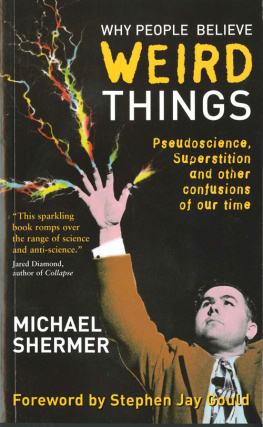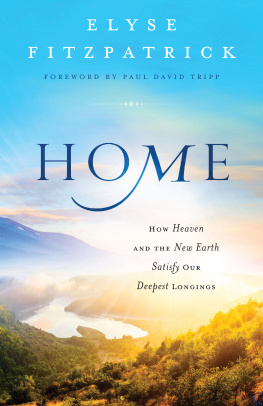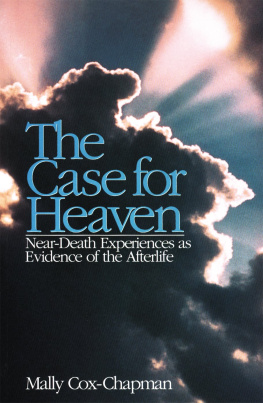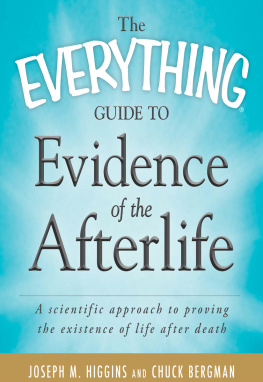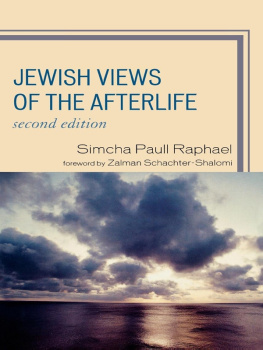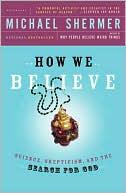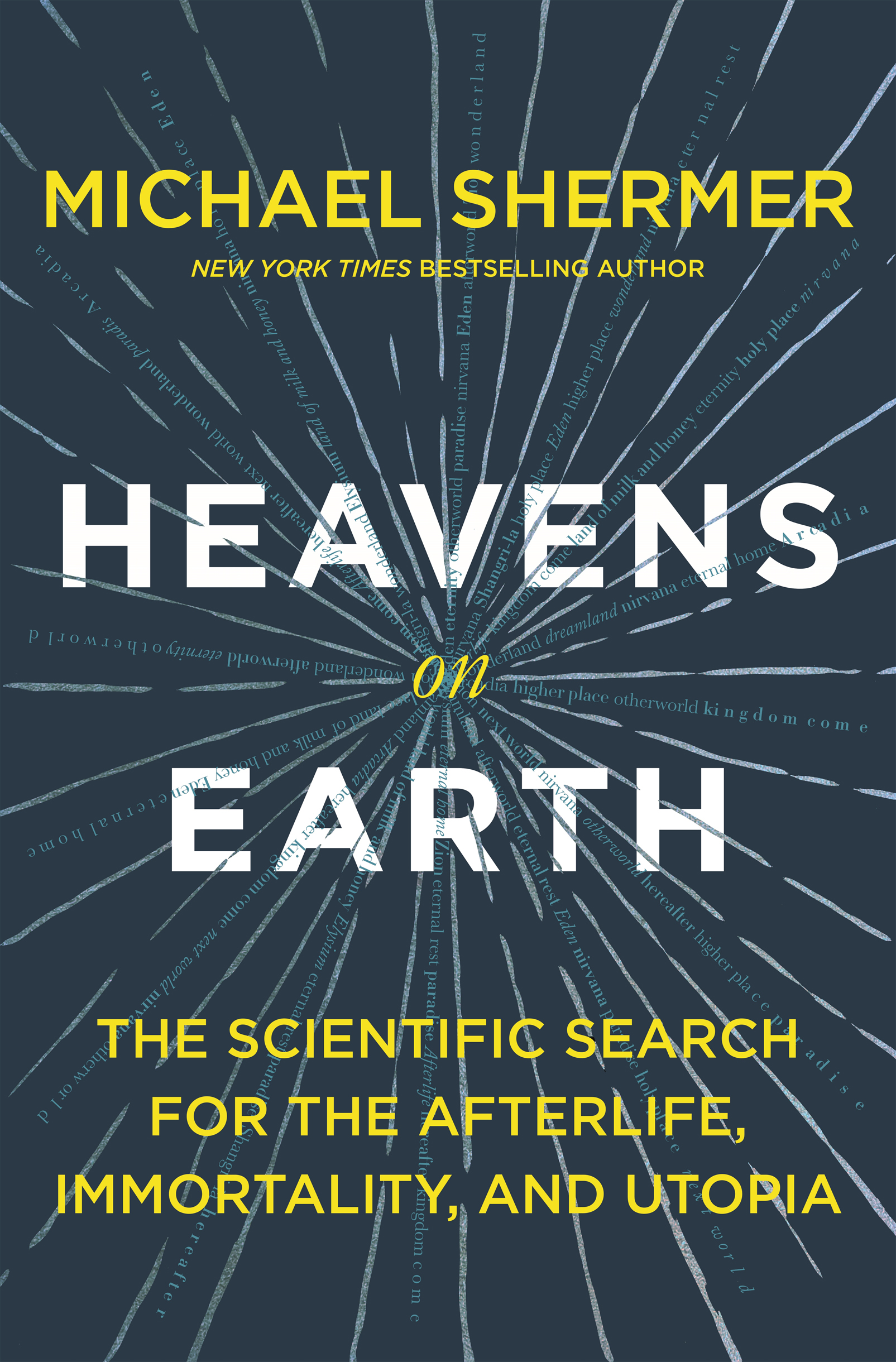Contents
Guide
Pagebreaks of the print version

The author and publisher have provided this e-book to you for your personal use only. You may not make this e-book publicly available in any way. Copyright infringement is against the law. If you believe the copy of this e-book you are reading infringes on the authors copyright, please notify the publisher at: us.macmillanusa.com/piracy.
To
Vincent Richard Walter Shermer
That you may find your own heaven on earth by looking within
Therefore death, the most terrifying of evils, is nothing to us, since for the time when we are, death is not present; and for the time when death is present, we are not. Therefore it is nothing either to the living or the dead since it is not present for the former, and the latter are no longer.
Epicurus, Letter to Menoeceus , third century B.C.E .
Life is short, and shortly it will end;
Death comes quickly and respects no one,
Death destroys everything and takes pity on no one.
To death we are hastening, let us refrain from sinning.
Ad mortem festinamus (We hasten toward death), medieval memento mori, Libre Vermeil de Montserrat , 1399
Between 50,000 B.C.E . and 2017 C.E . about 108 billion people were born. This is the reality of the human condition. Memento moriRemember that you have to die.
Life is short. Thanks to public health measures and medical technologies, life expectancy has more than doubled and is now approaching age 80 for Westerners, but no one has exceeded the maximum life-span of approximately 125 years for our species. This cycling through of the longest-lived person will continue indefinitely, but unless there are major medical and technological breakthroughs in life extension, which we will consider in due course, it is very unlikely to exceed 125. Memento mori.
Life is final. The poet Dylan Thomas urged us Do not go gentle into that good night, but instead Rage, rage against the dying of the light. Most people, though, opt for John Donnes conviction that One short sleep past, we wake eternally. But to get there you have to die. Memento mori.
The belief that death is not final is overwhelmingly common. Since the late 1990s, the Gallup polling group has consistently found that between 72 and 83 percent of Americans believe in heaven.
So powerful and pervasive are such convictions that even a third of agnostics and atheists proclaim belief in an afterlife. Say what? A 2014 survey conducted by the Austin Institute for the Study of Family and Culture on 15,738 Americans between the ages of 18 and 60 found that 13.2 percent identify as atheist or agnostic, and 32 percent of those answered in the affirmative the question Do you think there is life, or some sort of conscious existence, after death? The percentage is certainly lower than the overall mean of 72 percent for all Americans in this study, but it is surprisingly high given our understanding of the worldview held by most atheists and agnostics, which commonly presumes that if there is no God then there is no afterlife. Perhaps that is presumptuous; who knows what is in the minds of people when they complete such surveys? But given the fact that 6 percent of atheists and agnostics also believe in the bodily resurrection of the dead (compared to 37 percent overall), perhaps belief in God and immortality are orthogonalindependent of each other. One may believe in an afterlife but not God. Or both. Or neither.
DYING TO GO TO HEAVEN
Heavens above may or may not be real, but heavens on earth are, at least in the minds of those who believe in them. In that sense, the empyrean realm of gods and heavens that resides in the brains of believers is as real as anything in the terrestrial kingdom. Given the power of beliefs to drive people to act, we should treat such attitudes as seriously as we would political, economic, or ideological beliefs, which hold the same power over actions. As the Saudi cleric Abdullah Muhaisini shouted to his rebel factions in Syria to exhort them to retake the besieged city of Aleppo in 2016, referring to the paradise filled with beautiful women with lustrous eyes with which they would be rewarded upon death:
Where are those who want 72 gorgeous wives? A wife for you, O martyr in heaven, if she spits in the sea, the sea becomes sweet. If she kisses your mouth, she fills it with honey If she sweats, she fills paradise with perfume. Then how would it be in her embrace?
Ever since 9/11, people in the West have become understandably curious about the role of heavenly beliefs in suicide terrorist attacks. Although most Muslim scholars say that the Quran forbids suicidemuch less suicidal bombings that kill civiliansthere are obviously work-arounds for this proscription, given the proliferation of young men (and a few women) intent on becoming martyrs by donning bomb vests and blowing themselves up in crowded public places. In fact, in Islam the only people allowed to skip the purgatory-like judgment stage and go directly to paradise are martyrs. According to the religious scholar Alan Segal, in a holy war, the mujahidin can attain the status of the shahid , the martyr. Not only that, the early Hadith literature encourages martyrdom. The person seeking martyrdom, the talab al-shahada , is to be exalted and emulated. This kind of martyrdom is earnestly prayed for and devoutly wished for.
It was in fact Muhammad himself who ruled that as a general principle any Muslim soldier who died while attacking an infidel would go straight to paradise. Of course he would say that, given how well the promise motivated his own troops on March 15, 624, when Muhammads army faced a vastly larger force at the battle of Badr. After a lengthy prayer vigil, Muhammad announced to his anxious soldiers that the archangel Gabriel told him that an entire angelic force would be on their side and that anyone killed that day would instantly wake up in paradise. According to legend, a fifteen-year-old soldier named Umayr proclaimed in response: Wonder of wonders! Is there nothing between me and my entry into paradise but that these men kill me? Muhammads force won the battle and allegedly suffered only fourteen casualties that day, one of whom was, ironically (or not), Umayr. As in the Wild West, when the legend becomes fact, print the legend.
To carry over this martial payoff into modern suicidal missions, the enemy soldiers to be defeated are the invading armies of the Great SatanIsrael and Americaagainst which those who self-identify as Muslim martyrs are fighting. For this small but noticeable minority of the worlds Muslims, by definition, anyone who supports Israel or the United States is an infidel, and in this context, any violent act committed against the Great Satan is done in self-defense. The Satanic West, then, is anti-Islamic by definition. Thus, this form of terrorism differs from those of the political anarchists of the early twentieth century and the Marxist revolutionaries of the late twentieth century in that Islamic terrorists are willing to die not just for a political cause, but for religious motives with the promise of paradise as the reward. A paradigmatic statement of this modern belief comes from the 9/11 hijacker Mohammed Atta, whose suicide note (found in the luggage that he left in his rental car that morning before flying American Airlines flight 11 into the World Trade Center building) included the following passage:
When the confrontation begins, strike like champions who do not want to go back to this world. Shout, Allahu Akbar, because this strikes fear in the hearts of the nonbelievers. Know that the gardens of paradise are waiting for you in all their beauty, and the women of paradise are waiting, calling out, Come hither, friend of God. They have dressed in their most beautiful clothing.



